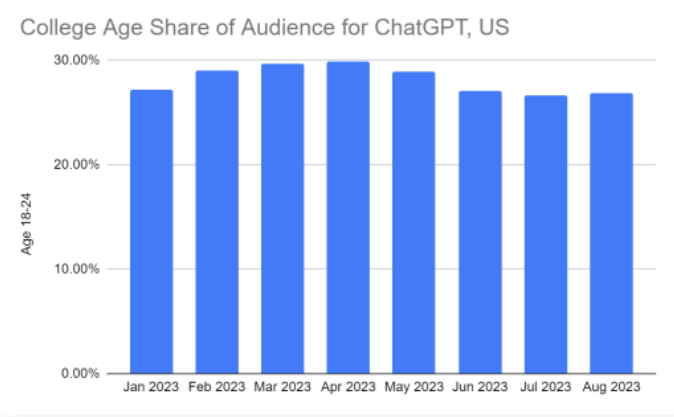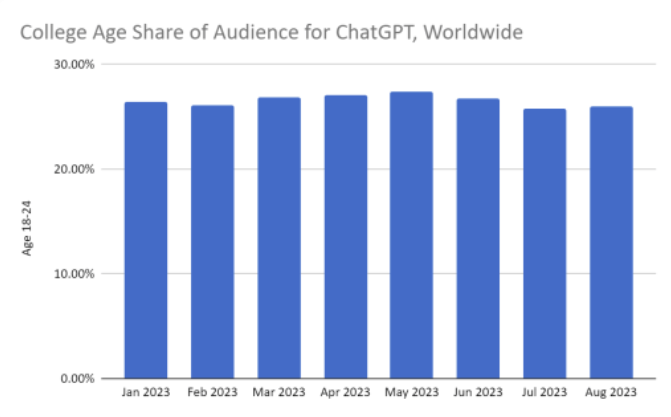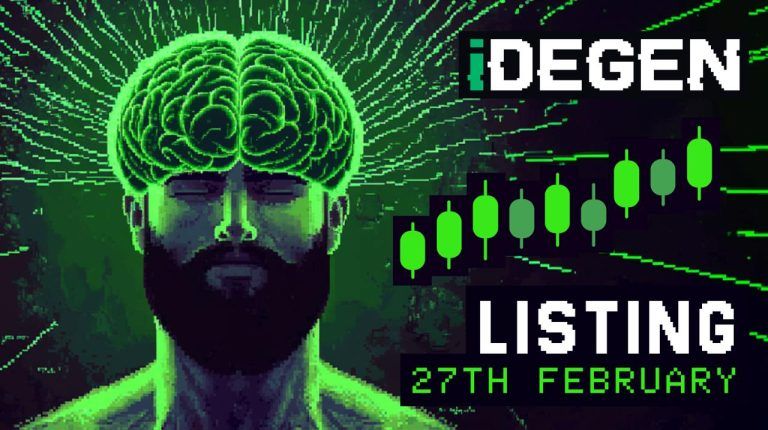
ChatGPT web traffic drops for third consecutive month in August

Web traffic from users worldwide for OpenAI’s ChatGPT declined during the summer months, which could be linked to university-aged users out of school.
The popular artificial intelligence (AI) chatbot ChatGPT has seen a decrease in user traffic worldwide for the third consecutive month this August, according to data from analytics company Similarweb.
In August, desktop and mobile site traffic to OpenAI’s popular chatbot from visitors worldwide decreased by 3.2% to 1.43 billion. This follows a 10% drop in traffic two months prior. In addition, the amount of time spent on the site also dropped, though slightly, from 8.7 minutes to 7 minutes in August.
However, visits stemming from United States-based users began to increase in August by 0.4%. Unique visitors to the site, which slumped in June and July, rose by 3% in the U.S. and 0.3% worldwide in August.
Similarweb senior insights manager David F. Carr, who consistently tracks AI chatbots and authored the report, wrote that the fluctuation in users could be the result of students using the program having summer break and now resuming classes.
“Students seeking homework help appears to be part of the story: the percentage of younger users of the website dropped over the summer and is now starting to bounce back.”
This theory can be backed up by the drop in audience for the summer months of ChatGPT users in the 18–24 age range, both in the U.S. and worldwide.
Related: ChatGPT v4 aces the bar, SATs and can identify exploits in ETH contracts
According to the data, in the 18–24 age bracket in the U.S., traffic dropped 10% in May, around the time U.S. universities finish their semester, 15% in June, and another 4% in July. At its peak in April, 18–24-year-old visitors made up 30% of the total audience share in the United States.


A separate survey from May 2023 by Intelligent.com surveyed 1,223 undergraduate and graduate students in the U.S. and found that 30% answered that they had used ChatGPT for schoolwork during the academic year.
It reported that of those, 46% “frequently” use the tool for homework, and 1 in 8 said they saw an increase in GPA, which could be traced to their usage of the AI chatbot.
At the moment, there are no overarching rules regarding AI usage in universities within the United States. However, in Japan, the Ministry of Education has already spoken out on its plans to allow limited use of generative AI tools in elementary, junior high and high schools.
Magazine: Tencent’s AI leviathan, $83M scam busted, China’s influencer ban: Asia Express
Go to Source
Author: Savannah Fortis









